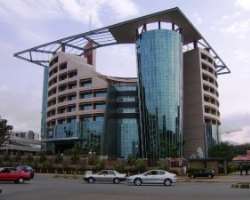NCC to licence new spectrums to deepen broadband penetration

The Nigerian Communications Commission (NCC) has commenced process towards licensing of 38 and 48 bands and the re-planning of the 23GHz microwave spectrum band for use in Nigeria to address the challenges of broadband penetration.
This was disclosed Thursday in Lagos by the Executive Vice Chairman of NCC, Prof. Umar Danbatta, at the stakeholders' consultative forum on licensing of 38GHz, 42GHz and re-planning of 23GHz band.
Danbatta said that the emerging trend in the telecommunications market in Nigeria today is broadband which will certainly require massive deployment in terms of critical infrastructure as to achieve the set target of government of 30 percent penetration by the year 2018.
The EVC who was represented by NCC director of Public affairs, Mr. Tony Ojobo, said that the growth in broadband traffic is on the increase and therefore resources would be required to avoid network challenges.
According to him, 'At this moment it is therefore paramount to take proactive measures to curb the impeding challenges. The opening up of 38 and 48 GHz band for use in Nigeria and the re-planning of the 23GHz microwave spectrum band is one of such measures.
'Currently, radio spectrums in the 38 and 42GHz bands are yet to be opened in Nigeria and the channeling plan for 23GHz needs to be reviewed in line with international best practices to meet requirement for higher throughout. The commission recognizes that it is important to review the channeling plan in some of the existing microwave frequency bands as well as to open and license other frequency bands that are commercially viable. This will enable efficient use of the spectrum.
'In addition, it will also enable the operators of the telecom industry to effectively meeting their spectrum needs for rollout of broadband services.'
On the licensing and pricing, The EVC said the commission has looked several models and schemes with the believe that the stakeholder forum will further guide in taking informed decisions on the bands.
Danbatta said the licensing will help address the growing demands by operators for spectrum for high speed and high capacity links for data centric services, assist the commission's drive for national Broadband Wireless Access (BWA) initiative and reduce the pressure and management challenges experienced with the traditional microwave frequency bands.
He therefore said the commission foresees the Nigerian consumers leveraging on these resources to enjoy better broadband services while the commission will continue to develop policies and guidelines in conjunction with stakeholders to deliver a better quality of experience for all.
On the meeting with the stakeholders, he said 'the commission as a matter of tradition institutionalized a policy of participatory regulation and industry wide consultations in carrying out its regulatory functions.
'As a world class commission regulatory organisation, we sincerely believe that our actions must be guided by decisions that take cognisance of the inputs from stakeholders.
'This is in consistent with the commission's 8 point agenda to facilitate strategic collaboration and partnership with relevant stakeholders, improve Quality of service, facilitate broadband penetration, optimize usage and benefits of spectrum, protect and empower, promote innovation and investment opportunities, promote fair competition and ensure regulatory excellence and operational efficiency,' the EVC explained.
